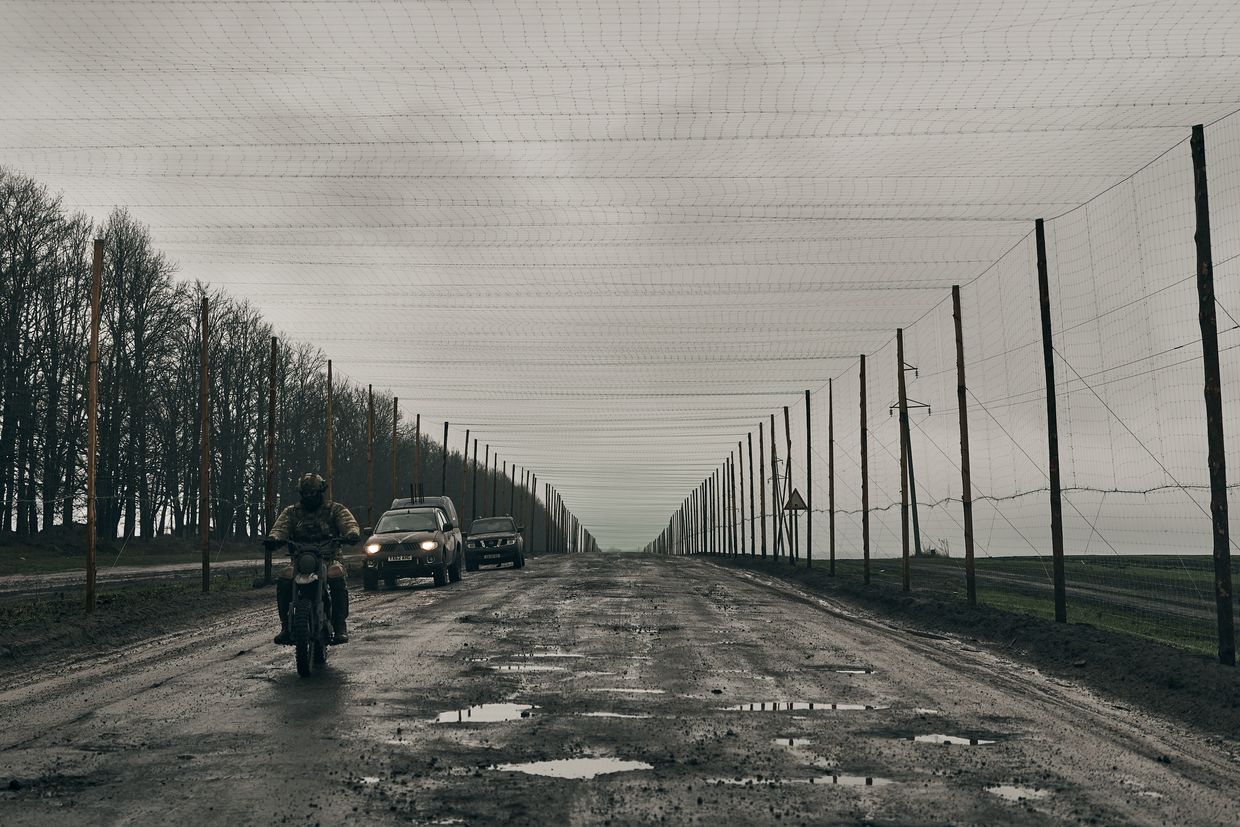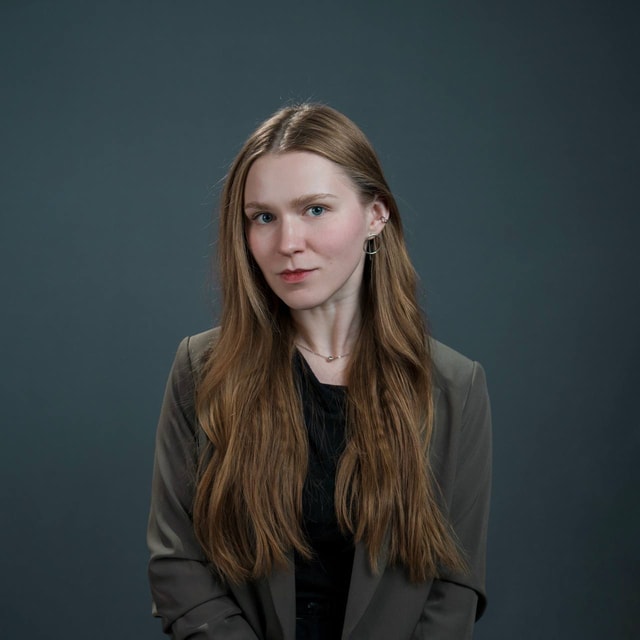Inside Ukraine's recent government reshuffle, where old ministers take new roles
Ukraine's government reshuffle reinforces presidential authority, bringing little actual change

Yulia Svyrydenko (C) applauds Denys Shmyhal (R) after his resignation as prime minister in Kyiv, Ukraine, on July 16, 2025. (Andrii Nesterenko / Global Images Ukraine via Getty Images)
Ukrainian lawmakers from the ruling party and opposition are unexpectedly united in their assessment of the latest government reshuffle — neither group expects much change.
"In reality, there is no personnel change in the government," Yaroslav Yurchyshyn, a lawmaker from the Holos party, told the Kyiv Independent on July 17 before the parliamentary vote on the new cabinet.
A similar take was shared by those who were tasked with approving such a change.
The major government reshuffle saw only three new faces appointed into the cabinet. All key ministries were retained by those serving in the previous cabinet, with the notable change being Economy Minister Yuliia Svyrydenko becoming the prime minister, and the former Prime Minister Denys Shmyhal taking on the Defense Ministry.
The lack of actual changes was exacerbated by the hectic process by which the changes were pushed through parliament.
"We don't understand the motivation behind this government shake-up."
According to several MPs, the list of candidates for government jobs shifted multiple times throughout the day, and some appointments were still undecided until the last minute, when President Volodymyr Zelensky gathered lawmakers from the ruling party to push through the shake-up.
The ruling Servant of the People still came short of the required number of votes and relied on former members of the now banned Russian-linked party and other parliament groups to push through the reshuffle.
"We don't understand the motivation behind this government shake-up," said Mykola Kniazhytskyi, a lawmaker from the European Solidarity party currently in opposition.
Old faces, fewer ministries
Following the July 17 vote in parliament, nine out of 16 ministers remain in place. Three others were reappointed to new roles, as well as the prime minister.
Among those who stayed are Foreign Minister Andrii Sybiha, Interior Minister Ihor Klymenko, Finance Minister Serhiy Marchenko, Health Minister Viktor Liashko, Veterans Affairs Minister Nataliia Kalmykova, Youth and Sports Minister Matvii Bidnyi, and Education Minister Oksen Lisovyi.
Mykhailo Fedorov, who continues to serve as minister of digital transformation, has also been promoted to first deputy prime minister. Oleksii Kuleba kept his posts as the vice prime minister and minister of regional development.
Meanwhile, the Defense Ministry was merged with the Strategic Industries Ministry and will be now led by Shmyhal, Ukraine's longest-serving prime minister.
The Economy Ministry has been merged with the Agriculture Ministry and the Ecology Ministry. The consolidated ministry will be headed by Oleksii Soboliev, who previously served as Svyrydenko's first deputy.

Another of her deputies, Taras Kachka, has been appointed Deputy Prime Minister for European and Euro-Atlantic Integration, replacing Olha Stefanishyna, who had held the role since June 2020. Kachka previously focused on shaping Ukraine's economic cooperation policies with the EU.

Stefanishyna also lost her second role as Justice Minister, a post she had held since a cabinet reshuffle in September 2024. She was replaced by Herman Halushchenko, who has led the Energy Ministry since 2021.
Taking Halushchenko's place as the new energy minister is Svitlana Hrynchuk, who previously served as Ecology Minister since 2024.
Stefanishyna was appointed as Ukraine's special envoy to the U.S. This move is temporary and is set to fill in the vacuum while all the necessary procedures for approving her candidacy as the next ambassador to the United States are finalized, Zelensky said.

Denys Uliutin, the former first deputy finance minister, will now lead the Social Policy Ministry. The ministry has absorbed the short-lived National Unity Ministry, which was created just seven months ago. The merger comes following corruption charges against its head, Deputy Prime Minister Oleksiy Chernyshov, in late June.
Some lawmakers say the move effectively is the quiet shutdown of the ministry, which was in turn created to give Chernyshov, who was among the president's closest allies, a government role.
Meanwhile, the Culture Ministry, which has been led by career diplomat Mykola Tochytskyi for less than a year, remains without a new minister. According to Yurchyshyn, the pool of candidates to lead the ministry was limited. Some were reportedly rejected for "not being sufficiently loyal to the President's Office," while others declined the offer. Most likely, one of Tochytskyi's deputies will be appointed as acting minister, the lawmaker said.
Why now?
At a closed-door meeting with journalists in June, attended by the Kyiv Independent, Zelensky said he wanted to see "new energy" when asked about a possible reshuffle.
In July, Zelensky said he expected the new government to focus on boosting Ukraine's economy and increasing domestic weapons production.
Experts and lawmakers believe that, since Ukraine cannot hold elections during martial law, the president is using reshuffles as a way to introduce at least some form of change.
Oleksandr Merezhko, a member of Zelensky's Servant of the People party, echoed this sentiment. He believes that such reshuffles help "revitalize political life." He also said that among lawmakers, there has been dissatisfaction with the performance of certain ministers, as well as a general sense of "fatigue."
Lawmaker Yurchyshyn believes that the government hopes to use the reshuffle to restore public trust.

"The entire PR campaign around this reshuffle, which is essentially just rearranging the same faces in government, is meant to convince people that something new is happening," Yurchyshyn said.
The government reshuffle occurred under legally questionable circumstances, fueling fears of further centralization of power in the hands of the President's Office, which already is controlling the majority of decision-making in the country.
The law prohibits dismissing the cabinet during martial law without legislative changes. Additionally, the ruling coalition must nominate the prime minister, with the president playing a secondary role in government changes.
"(Svyrydenko) is an energetic, dynamic person. She has been promoted, and she is now a media figure. She has experience in conducting very difficult negotiations."
Zelensky bypassed this process, announcing that he personally proposed Svyrydenko's nomination — a move some observers and lawmakers see as yet another step consolidating presidential authority.
The prime minister of Ukraine serves as the head of the Cabinet of Ministers, formally leading the country's executive branch. Yet, according to political analyst Yevhen Mahda, the role of the prime minister and the government has become a "facade" in the current political landscape.

"We should understand that the political situation is not changing at all. Our cabinet does not function as an independent political player; it is a technical body. The main and key policies are shaped by the president and his office," said Olexiy Haran, politics professor at Kyiv Mohyla Academy and research advisor at the Democratic Initiatives Foundation.
Some political observers believe that Andrii Yermak, head of the President's Office since 2020 and a longtime friend of Zelensky, plays a key role in shaping personnel decisions.
According to Kniazhytskyi, it is "extremely difficult" to separate Yermak's influence from Zelensky's. But Zelensky is still in charge, and Yermak "fulfills all the president's wishes," he added.
"Yermak's influence is noticeable, but there is one thing. His influence is growing, but his responsibility is not. Since, as head of the President's Office, his responsibility is minimal," Mahda said.
Key post, key ministry
Meanwhile, Svyrydenko takes office at a challenging time, when Western support is uncertain, domestic problems are mounting and the war is nowhere close to being near the finish line.
For a period, she remained largely behind the scenes despite leading one of the key ministries — the economy. However, in recent months, Svyrydenko has emerged as one of Ukraine's most visible and influential political figures, representing the country at key international events and high-level meetings.
"(Svyrydenko) is an energetic, dynamic person. She has been promoted, and she is now a media figure. She has experience in conducting very difficult negotiations," Haran said.
One of her most notable achievements was leading the negotiations of a minerals deal with the U.S. The initial draft was met with criticism in Kyiv. Through careful diplomacy, she and her team revised the agreement into something Ukraine could accept, while reinforcing ties with Washington. She also maintained relations with U.S. Treasury Secretary Scott Bessent.
Svyrydenko is widely seen as a trusted member of Zelensky's inner circle and a loyal ally of Yermak. She served as his deputy in 2020-2021.
"Undoubtedly, she will have less independence than Shmyhal. Although speaking about Shmyhal's independence is somewhat laughable. I think he managed to stay in that position for so long precisely because he wasn't independent. Yuliia Svyrydenko still has to grow into that," said Kniazhytskyi.
"In every normal country, the prime minister should be a political figure. But here, each successive figure is less and less political. This is more of a technical executor, an efficient executor — of whatever is decided in the President's Office."
Yet, Shmyhal is also not going anywhere, remaining close to the steering wheel.
Mahda believes Zelensky chose Shmyhal as part of a "compensatory mechanism," adding that assigning the former prime minister to a lower-ranking role would have been seen as "humiliating."
Some lawmakers suggest that Shmyhal may also be tasked with addressing the missteps of his predecessor, Rustem Umerov, who faced public backlash following a scandal over defense procurement transparency during his time in office.
Umerov didn't receive a new government appointment, but as with most former top rank officials, he isn't expected to be forgotten by the president, and is likely to receive a new less influential post in Ukraine or abroad.
Note from the author:
Hello there! This is Kateryna Denisova, the author of this piece. I hope you found this article informative. Please consider supporting our reporting. We promise to deliver more stories on this topic going forward.












